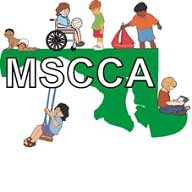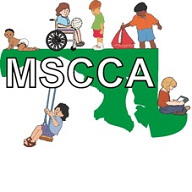Updates on COVID-19 legislation from our accountants Kullman, CPA
Earlier today, the US House of Representatives passed the Coronavirus Aid, Relief, and Economic Security (CARES) Act. The president is expected to sign the bill. The CARES Act is 854 pages long and includes several significant business and individual tax provisions. Here are some of the highlights:
• Paid FMLA, up to $200 per day and $10,000 total
• Paid sick leave, up to $511 per day and $5,110 total, for those directly affected by Coronavirus
• Paid sick leave, up to $200 per day and $2,000 total for sick leave taken to care for a family member or because of a school closure
• Workers who were laid off after March 1 but then are rehired are eligible for FMLA
• Employee retention credits for employers forced to close due to COVID-19
• Paycheck protection loans, expanded to include sole proprietors, independent contractors, and eligible self-employed individuals
• Elimination of taxable income limit for certain net operating losses (NOL) and allow businesses and individuals to carry back NOLs arising in 2018, 2019 and 2020 to the five prior tax years
• Suspension of the excess business loss rules
• Loosens the business interest limitation from 30% to 50%
• Fixes the glitch that prevented qualified improvement property from being depreciated over 15 years and eligibility for bonus depreciation
• Loans with low interest rates and deferred payments to struggling businesses
• Loan forgiveness
• Loans (with specific terms and conditions) up to $500B to eligible businesses operating in severely distressed sectors of the economy, states, and municipalities, allocated to:
1. $25B for passenger air carriers
2. $4B for cargo air carriers
3. $17B for businesses “critical to maintaining national security”
4. $454B for other eligible businesses, US states, and municipalities
• Unemployment assistance, expanded for 13 weeks with a four-month enhancement of benefits, and eligibility is extended to people who are not regularly eligible and those who have already exhausted their benefits
• Penalty-free access to retirement account savings to address virus-related financial hardships
• Expanded deduction for charitable contribution
• Individual recovery rebates in the form of cash payments
In addition to the CARES Act from the US House of Representatives, Maryland has implemented many emergency relief measures to assist businesses and individuals during the coronavirus pandemic.
• Maryland business and individual income taxpayers will be given a 90-day extension for tax payments. No interest or penalty for late payments will be imposed if 2019 tax payments are made by July 15, 2020.
• Comptroller Franchot also extended business-related tax filing deadlines to June 1.
• Businesses who paid their Maryland Sales & Use Taxes for March early may request a refund of their payment by emailing taxpayerrelief@marylandtaxes.gov or by calling 410-260-4020.
• Maryland has received official designation from the U.S. Small Business Administration (SBA) for its Economic Injury Disaster Loan (EIDL) program, which provides low-interest federal disaster loans for small businesses impacted by the Coronavirus. Loans will help alleviate financial strain and allow businesses to pay bills, payroll, and accounts payable, with long-term payments stretching up to 30 years. Small businesses and private non-profit organizations can apply directly to the SBA for financial assistance at: https://www.sba.gov/funding-programs/disaster-assistance.
• Maryland COVID-19 Emergency Relief Fund Programs for Businesses – $130 million in funding for small businesses, manufacturers, and nonprofits (three separate funds) for interim relief that can be used to pay cash operating expenses including payroll, suppliers, rent, fixed debt payments and other mission critical cash operating costs. Eligibility requirements can be found at: https://commerce.maryland.gov/fund/maryland-small-business-covid-19-emergency-relief-fund-programs
Not everyone may qualify for the new programs targeted towards small businesses impacted by the Coronavirus. There are many additional state programs and resources for small businesses to consider offered from the Maryland Department of Commerce:
o Advantage Maryland
o Maryland Industrial Development Financing Authority and Fund (MIDFA)
o Maryland Small Business Development Financing Authority (MSBDFA)
o Non-Profit Interest-Free Micro-Bridge Loan Program
o Small, Minority and Women-Owned Business Account
o Neighborhood BusinessWorks Program
We will continue to provide additional details and clarification on the above in the coming days. Please stay tuned!


 and then
and then